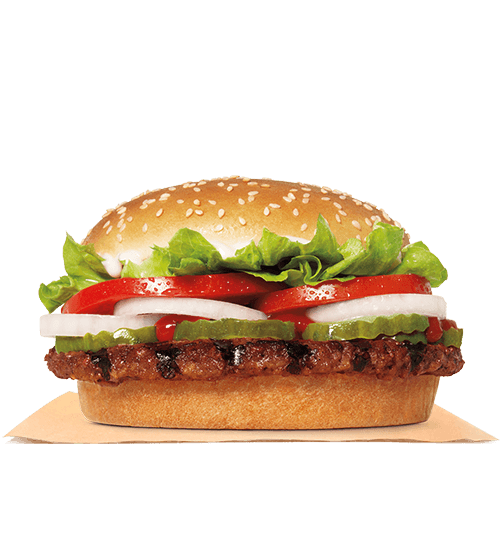
Popular food chain Burger King has recently introduced a plant-based burger to appeal to vegans who never dared to step inside their premises. Yet calling these items vegan isn't accurate either. The Rebel Whopper of Burger King is grilled on the same griller for meat-based patties, and many non-meat eaters are not buying that.
The population of vegan is not exactly high -- it is less than one percent -- yet that number is already enough for meaty food chains to wager on capitalizing these people.
While it sounds wicked and selfish, Toni Vernelli said that it is still an important proof to show the power of veganism.
These fast-food chains are not serving animals to feed people but to make a profit, said Vernelli, the head of communications at the nonprofit organization Veganuary. So by making them realize that they could commercialize animal-free products, Vernelli hoped that anima-based product will be lessened.
However, Nancy Nussbaum, an animal rights activist, disagreed because the vegan alternatives will not stop animals from being slaughtered because these are just an option "to bring new customers".
She also added that since activists expose the animal-cruelty, these companies were "terrified" and are "pretending to be our friends" by producing animal-friendly items.
According to the CEO of Burger King's parent company, José Cil, even after the introduction of the soy-based Impossible Whooper, the burger chain did not experience any less demand for the beef-based Whopper. The new item just attracted new guests.
Among those new guests is Karin Ridgers, the founder of the online channel Veggie Vision. Her family is all vegans, including his 13-year-old son who felt left out since he cannot join his friends on fast foods. However, after the introduction of Greggs vegan sausage rolls, the kid was delighted since he will not be the "odd one" anymore.
Read also: Veganism: Healthy Boon or Just a Fad Diet?
"Red meat is a necessity!"
The United Kingdom is considered as the world's leading contender in terms of offering meatless products. While the result could be satisfying since it will help the country to meet the goal of the 2015 Paris Agreement, some are not happy.
Alice Stanton, professor of cardiovascular pharmacology at the Royal College of Surgeons in Ireland, claimed that the key nutrients of many crop yields have reduced by at least 50 percent over the past five decades.
She blamed these on genetic selection since farmers picked a crop with beautiful appearance, and not by its nutrient content.
She also said that it is very challenging for a vegan to meet their needed nutrition since it will need "a lot of knowledge and effort". And considering how busy people are now, they will not have time for that.
Speaking about the dramatic reduction of red meat consumption, Stanton claimed that red meat is still a necessity, especially for children during their first three years of life. She also added that when consumed in moderation, it can protect our body against heart attacks, strokes, and cancer.
However, she did agree with the 2019 study that claimed people in Europe and North America should limit its red meat consumption up to "one beef burger and two servings of fish" per week.
Will Jackson, of the livestock industry body AHDB, also agreed with Stanton, saying that the key here is a balanced diet and every food group should be consumed together but in moderation.
Forestry specialist Anna Jones from Greenpeace UK said that Stanton's stance about red meat reduction is correct, but considering the impact of the meat industry on the climate, the action must be done.
© 2025 NatureWorldNews.com All rights reserved. Do not reproduce without permission.





